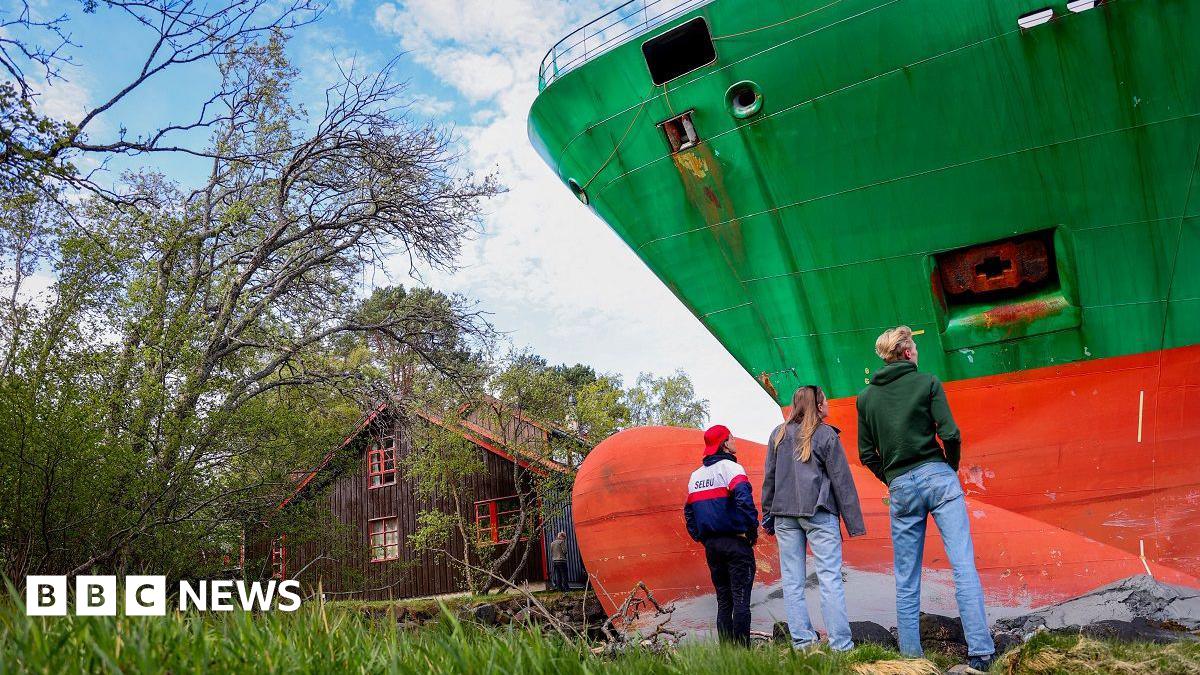Unveiling The Truth: A Look At South Korea's History Of Adoption

Welcome to your ultimate source for breaking news, trending updates, and in-depth stories from around the world. Whether it's politics, technology, entertainment, sports, or lifestyle, we bring you real-time updates that keep you informed and ahead of the curve.
Our team works tirelessly to ensure you never miss a moment. From the latest developments in global events to the most talked-about topics on social media, our news platform is designed to deliver accurate and timely information, all in one place.
Stay in the know and join thousands of readers who trust us for reliable, up-to-date content. Explore our expertly curated articles and dive deeper into the stories that matter to you. Visit Best Website now and be part of the conversation. Don't miss out on the headlines that shape our world!
Table of Contents
Unveiling the Truth: A Look at South Korea's History of Adoption
South Korea's history is interwoven with a complex and often heartbreaking narrative of adoption. For decades, thousands of Korean children found new homes abroad, a phenomenon shrouded in both heartwarming stories of successful international families and unsettling questions about the circumstances surrounding these adoptions. This article delves into the often-overlooked truths behind South Korea's adoption history, exploring the societal factors, ethical considerations, and ongoing impact on those involved.
A Nation Divided: The Post-War Context
The Korean War (1950-1953) left a nation scarred, with widespread poverty and social upheaval. Many children were orphaned or abandoned due to the conflict's devastating consequences, creating a large pool of vulnerable infants and young children. This, coupled with a strong societal stigma surrounding unwed mothers and illegitimate children, fueled a significant increase in the number of children available for adoption.
The Rise of International Adoption:
The 1950s and 1960s saw the emergence of a robust international adoption system, largely facilitated by charitable organizations and often driven by a perceived need to provide better lives for these children. While many adopted children thrived in their new homes, the process itself lacked transparency and often involved questionable practices. Concerns surrounding coercion, inadequate record-keeping, and the emotional impact on birth mothers remain central points of discussion today.
Ethical Concerns and the Search for Identity:
One of the most significant ethical concerns revolves around the lack of information provided to adoptees about their origins. Many adoptees have embarked on arduous journeys to uncover their birth families and their past, highlighting the lasting impact of fragmented identities and the need for greater transparency in adoption records. Organizations like [link to a relevant organization supporting Korean adoptees], are actively working to address these issues.
The Changing Landscape of Adoption in South Korea:
In recent years, South Korea has witnessed a significant shift in its approach to adoption. There's been a growing emphasis on domestic adoption and a renewed focus on providing support for birth mothers and their children. The government has also implemented stricter regulations to ensure ethical practices and greater transparency in the adoption process.
The Ongoing Conversation:
The legacy of South Korea's adoption history continues to shape the lives of thousands of individuals, both domestically and internationally. It's a story of resilience, loss, and the enduring power of family, but it’s also a story that demands ongoing dialogue and reflection. The search for truth and the pursuit of healing are central themes in understanding this complex chapter in South Korean history.
Key Takeaways:
- Historical Context: The Korean War and its aftermath significantly influenced the adoption landscape.
- Ethical Concerns: Lack of transparency and questionable practices raised significant ethical concerns.
- Identity Search: Many adoptees face challenges in uncovering their roots and building a complete sense of self.
- Modern Reforms: South Korea has implemented stricter regulations and promoted domestic adoption.
- Ongoing Dialogue: Continued conversation and understanding are crucial to addressing the legacy of past practices.
This article aims to provide a comprehensive overview of this multifaceted topic. For further reading and resources, consider exploring [link to scholarly article on Korean adoption] and [link to a relevant documentary]. The ongoing discussion about South Korea's adoption history is vital for ensuring a more ethical and transparent future for all involved. Let's continue to learn, listen, and work towards healing and understanding.

Thank you for visiting our website, your trusted source for the latest updates and in-depth coverage on Unveiling The Truth: A Look At South Korea's History Of Adoption. We're committed to keeping you informed with timely and accurate information to meet your curiosity and needs.
If you have any questions, suggestions, or feedback, we'd love to hear from you. Your insights are valuable to us and help us improve to serve you better. Feel free to reach out through our contact page.
Don't forget to bookmark our website and check back regularly for the latest headlines and trending topics. See you next time, and thank you for being part of our growing community!
Featured Posts
-
 Flash Flood Warning Issued Allegheny County Residents Urged To Take Precautions
May 25, 2025
Flash Flood Warning Issued Allegheny County Residents Urged To Take Precautions
May 25, 2025 -
 2025 Indy 500 Race Start Time Tv Schedule And Live Stream Details
May 25, 2025
2025 Indy 500 Race Start Time Tv Schedule And Live Stream Details
May 25, 2025 -
 Unbelievable Container Ship Found In Norwegian Mans Backyard
May 25, 2025
Unbelievable Container Ship Found In Norwegian Mans Backyard
May 25, 2025 -
 Analyzing The Legacy Of Black Lives Matter Plaza A Case Study
May 25, 2025
Analyzing The Legacy Of Black Lives Matter Plaza A Case Study
May 25, 2025 -
 Foreign Tourist Drop To Cost Us Economy 23 Billion And 230 000 Jobs New Study
May 25, 2025
Foreign Tourist Drop To Cost Us Economy 23 Billion And 230 000 Jobs New Study
May 25, 2025
Latest Posts
-
 Strong Ai Demand Propels Tsmc To 61 Q2 Profit Growth Beating Analyst Estimates
Jul 17, 2025
Strong Ai Demand Propels Tsmc To 61 Q2 Profit Growth Beating Analyst Estimates
Jul 17, 2025 -
 Prediction Rublev Vs Davidovich In The Atp Los Cabos 2025 Final
Jul 17, 2025
Prediction Rublev Vs Davidovich In The Atp Los Cabos 2025 Final
Jul 17, 2025 -
 Beyond The Games Understanding Chinas Strategic Push For Robotics Through Sport
Jul 17, 2025
Beyond The Games Understanding Chinas Strategic Push For Robotics Through Sport
Jul 17, 2025 -
 Modernizing The Physician Associate Role A New Name
Jul 17, 2025
Modernizing The Physician Associate Role A New Name
Jul 17, 2025 -
 Atp Los Cabos 2025 Rublev And Davidovich Top Contenders
Jul 17, 2025
Atp Los Cabos 2025 Rublev And Davidovich Top Contenders
Jul 17, 2025
